What's New in TeamCity 2023.09
Enhanced Integration with Perforce Helix Swarm
In version 2023.09, we have overhauled the "Perforce Helix Swarm" publisher of the Commit Status Publisher build feature. TeamCity can now utilize workflows and tests that already exist in your Swarm setup (instead of creating its own tests). In addition, the Publisher no longer requires credentials of a user with administrator access.
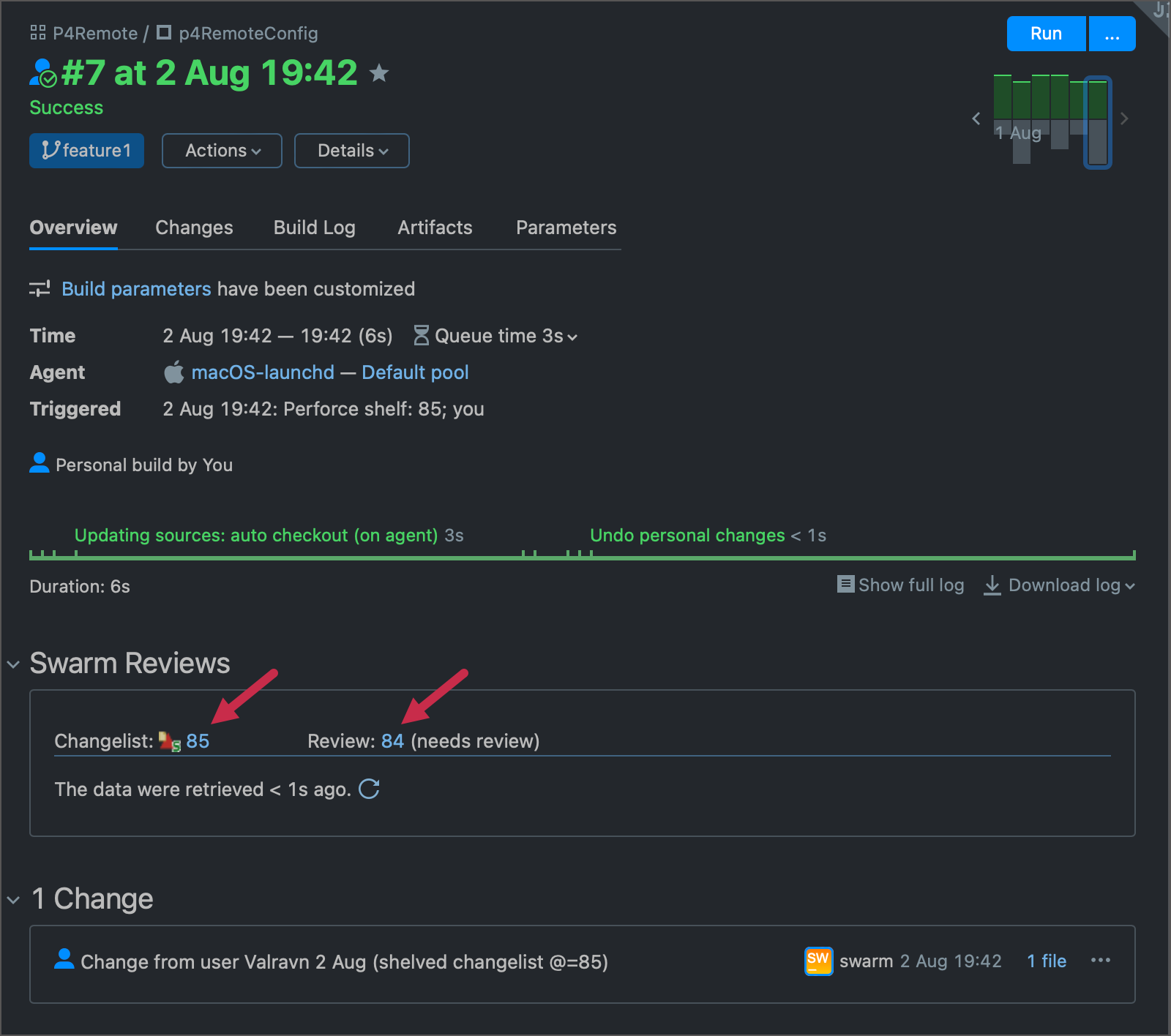
Learn more: Integration with Perforce Helix Swarm.
Step Statuses and IDs
Starting with version 2023.09, you can specify IDs for your steps (similarly to project and configuration IDs).
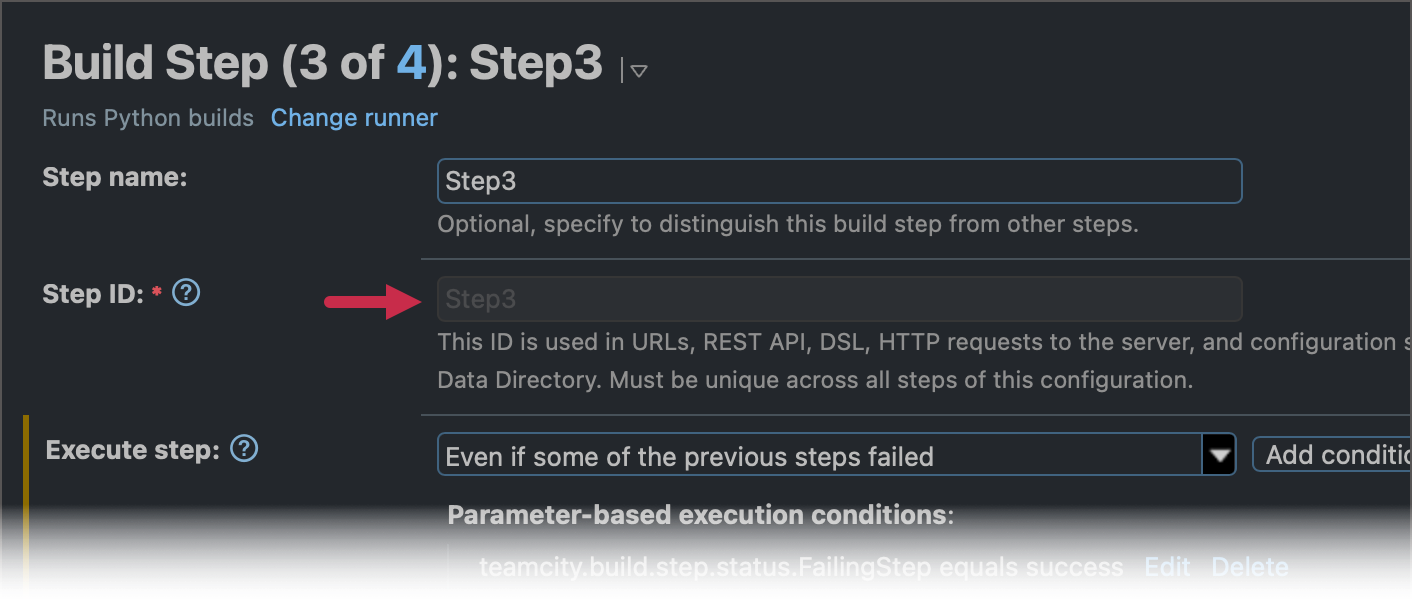
TeamCity uses these IDs to generate new teamcity.build.step.status.<step_ID> parameters that report the step exit statuses ("success", "failure", or "cancelled").
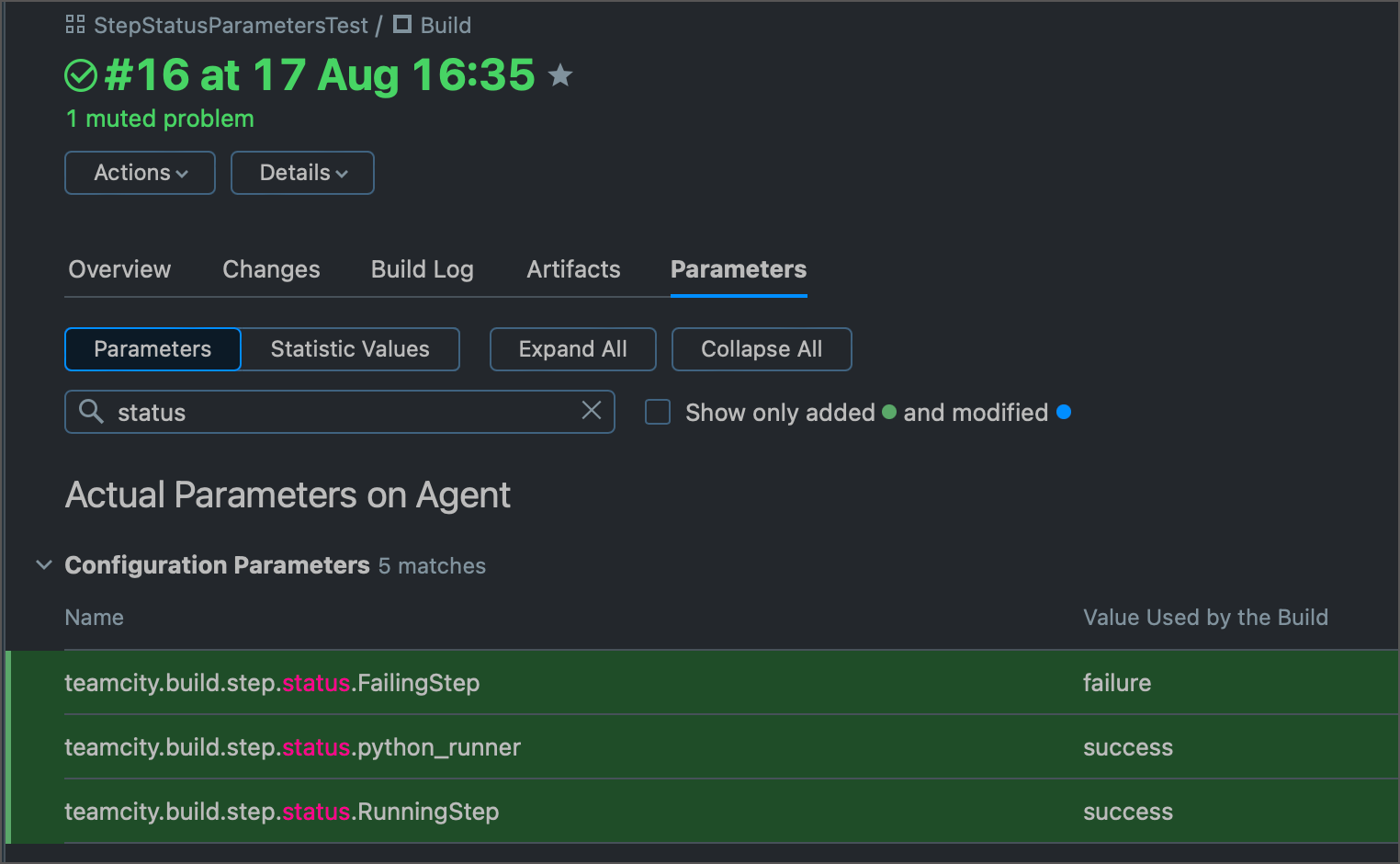
You can use these values to perform custom actions depending on the statuses of previous steps. For example, you can craft custom step execution conditions.
Learn more: Step Status Parameters.
Service Messages
Added the new service message that allows you to track the contents of the given file and echo new lines to the build log.
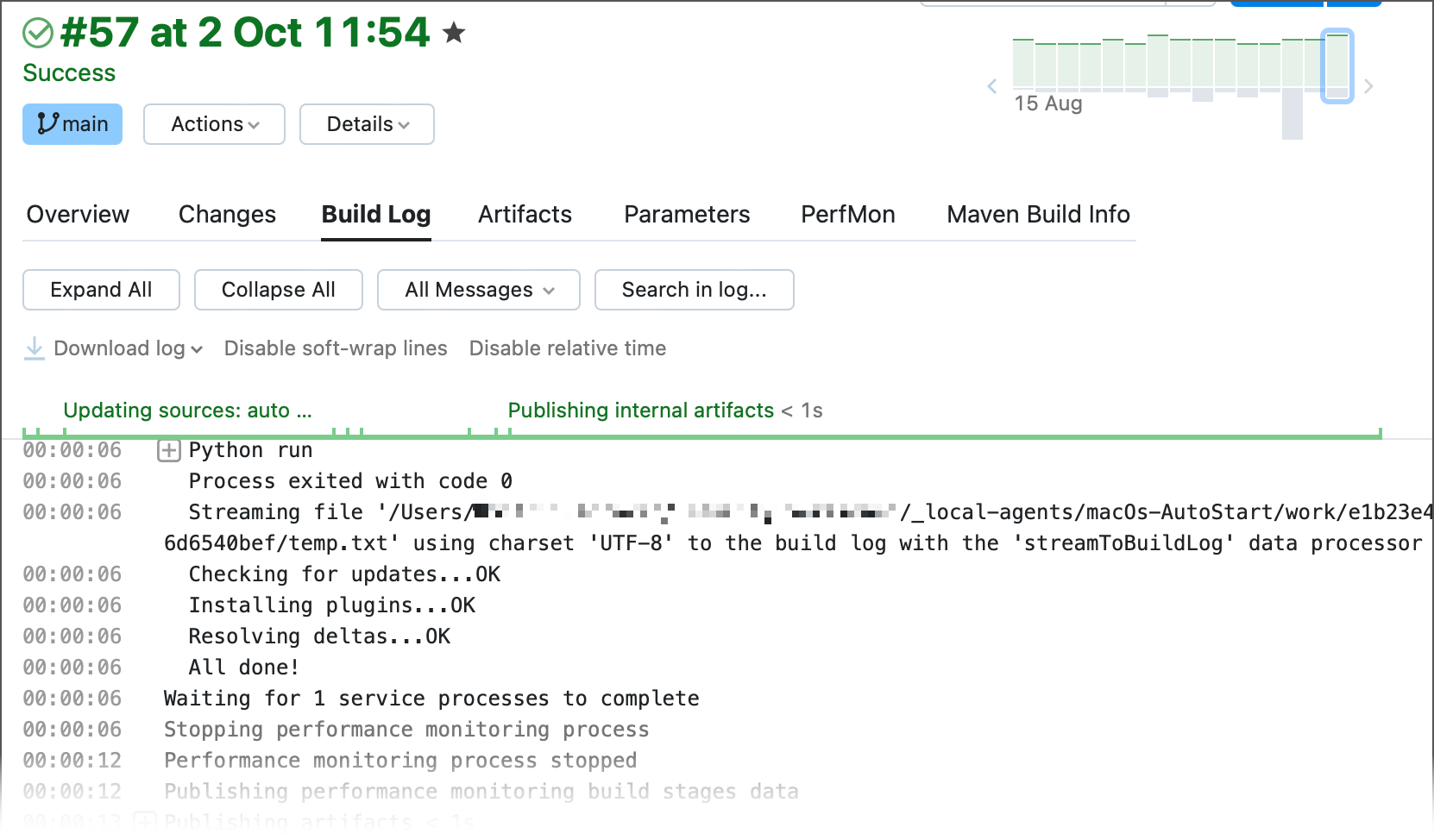
Learn more: Writing the File into the Build Log.
Token-Based Authentication
We continue updating TeamCity connections, build features, and VCS Root objects to support authentication via short-lived OAuth tokens, which are more secure than traditional static PATs (personal access tokens).
In version 2023.09, authorization via OAuth tokens was added for:
Commit Status Publisher that post statuses to GitLab.
Pull Requests features that target GitLab and Bitbucket Cloud repositories.
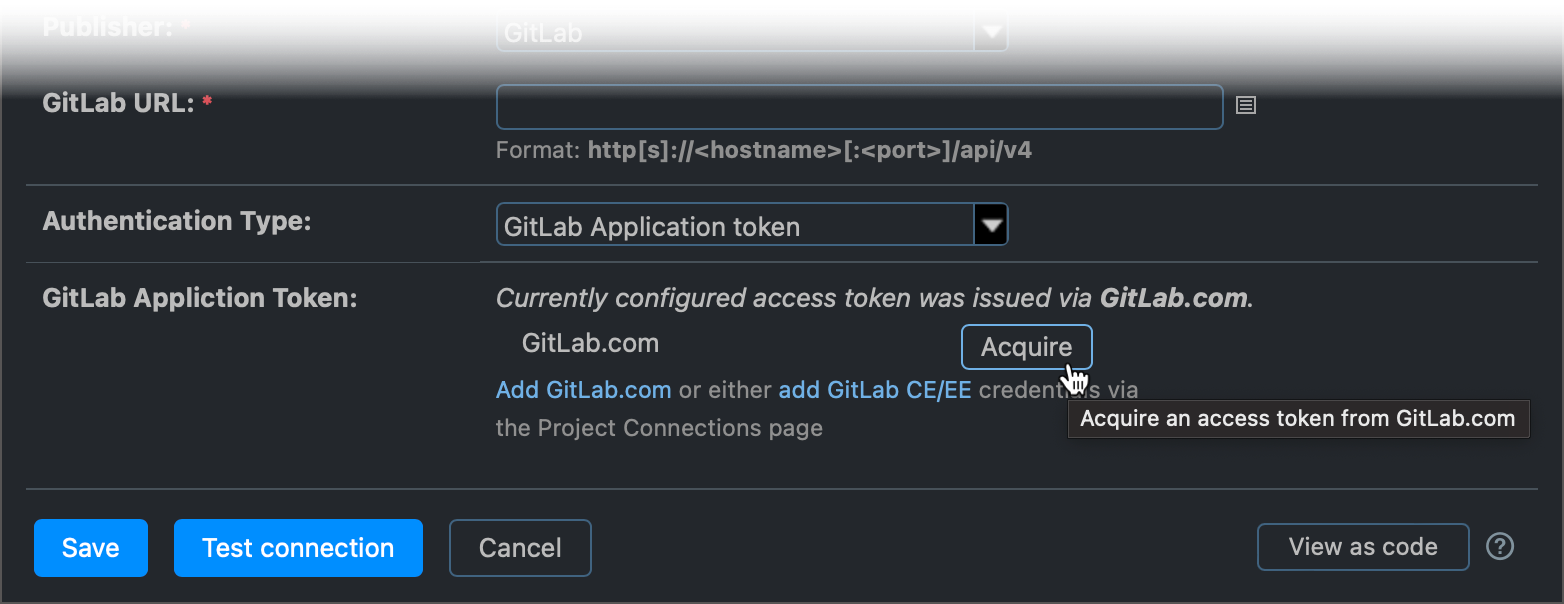
Learn more: Commit Status Publisher | Pull Requests.
JetBrains Space Integration
Starting with this version, TeamCity build configurations that target JetBrains Space repositories do not require a configured Commit Status Publisher build feature to post build-related updates. Set up a TeamCity project via a predefined Space connection and build statuses will be posted automatically.
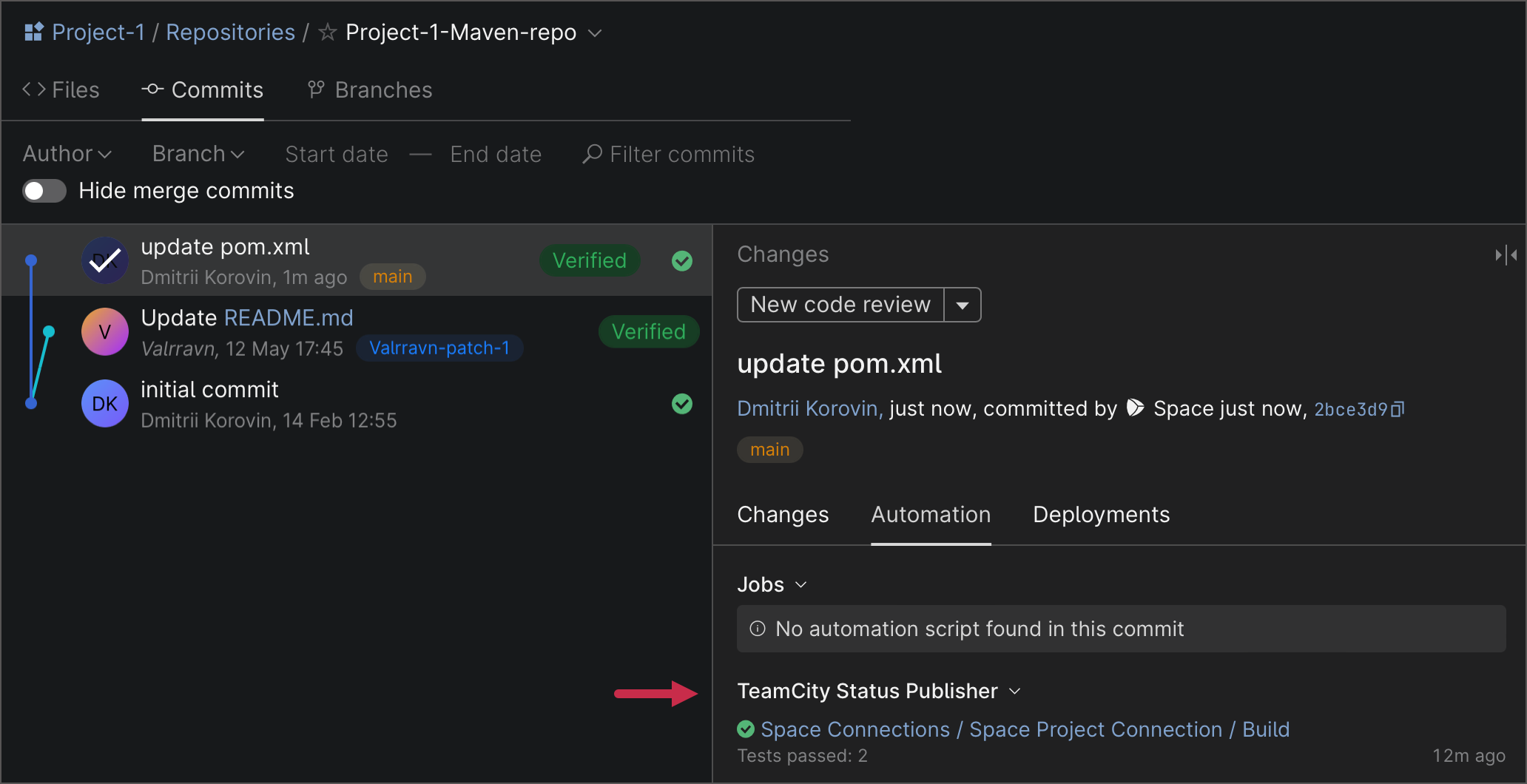
The option to manually set up the Commit Status Publisher feature is still available for those who wish full control over the process, as well as for custom setups where TeamCity is unable to publish build statuses automatically.
Learn more: JetBrains Space.
Miscellaneous
TeamCity distributes agents more effectively and processes large build chains with failing builds faster. Starting with version 2023.09, dependent builds whose "On failed dependency" condition is "Make build failed to start" no longer wait for an available agent when their dependencies fail or are canceled. Instead, the dependent build's status changes to "Failed to start" as soon as possible, and TeamCity proceeds to the next build in the chain.
The Commit Status Publisher build feature now correctly publishes build statuses for configurations that target
refs/(merge-requests/*)/headbranches of GitLab repositories (the "merge result" branches). Previously, running TeamCity builds for merge result revisions caused the Publisher to encounter HTTP 404 errors.If users log into TeamCity using credentials of an external 2FA-protected service, TeamCity does not send additional 2FA requests. Learn more: Reduce Excessive Authorization Requests.
Performance Monitor now shows absolute values of the consumed/total agent memory.
The Dependencies Tab now displays a find panel that allows you to search for specific dependent builds by configuration names.
You can now add the
dateFormat=<value>parameter to URLs used by your log analysis tools to retrieve build logs. Learn more: Modify the DateTime Pattern.
Roadmap
See the TeamCity roadmap to learn about future updates.
We'd Love to Hear From You
We place a high value on your feedback and encourage you to share your thoughts and suggestions. See this link for more information: Feedback.